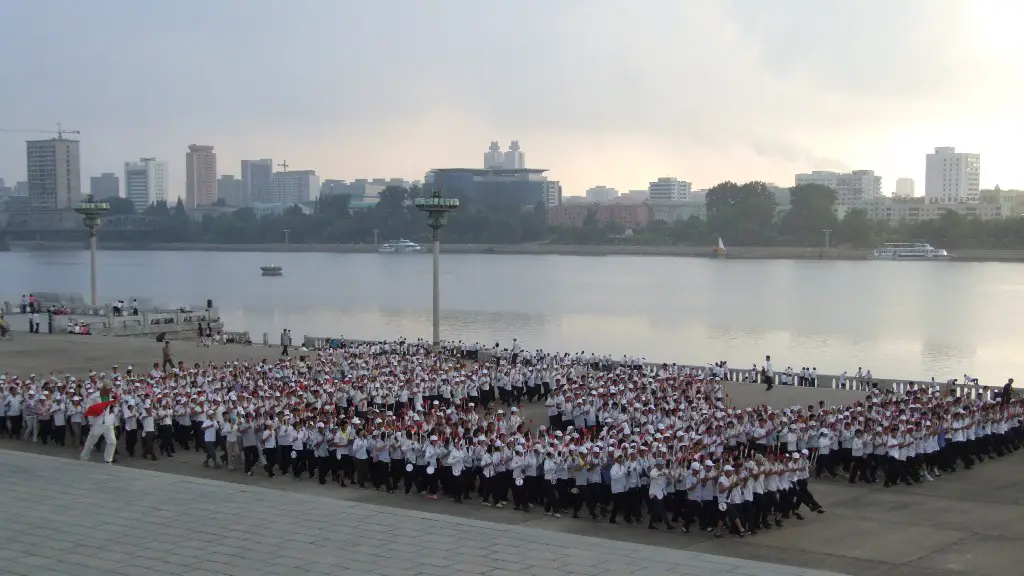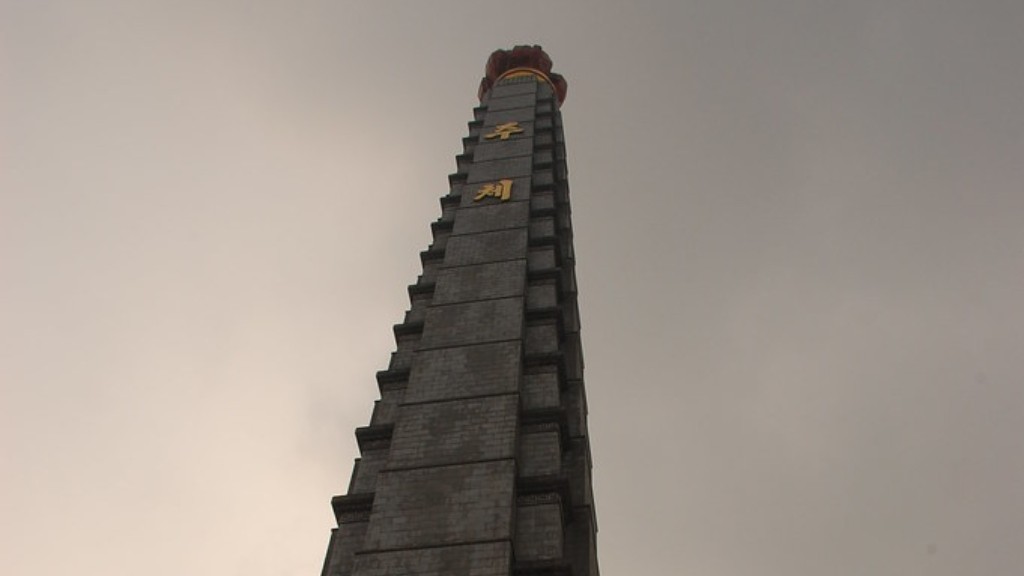Economic Reasons
Many people look at North Korea and wonder why nothing is being done about it. The reality is, there are many economic reasons why North Korea is able to operate in relative isolation from the rest of the world. North Korea is rich in natural resources, such as iron ore, coal, zinc, and magnesite, and is also well-positioned for strategic military activities in the region. This gives North Korea a certain amount of economic security, which has enabled it to build up a strong military and nuclear weapons program.
The global economy has also contributed to the lack of traction around North Korea, as the world could little afford an aggressive action that would result in further economic damage. This has also meant that international sanctions, while impacting North Korea to some degree, have been ineffective in brining about meaningful change.
North Korea also has a powerful ally in the form of China, who accounts for 90% of North Korea’s trade and regularly shields them diplomatically on the international stage. It is thus no surprise that the United States, the global superpower, in recent years has been unable to call any sort of global response to North Korean aggression.
Political Constraints
Political constraints are also a factor in the lack of action taken against North Korea. The North Korea regime is well-known for its human rights abuses, and the regime’s political leaders have proven time and time again that they are not going to engage in meaningful dialogue about reforms. This makes it difficult for global leaders to have negotiating power, as the North Korean government has little incentive to work cooperatively with other nations.
The politics of the region also have an influence on the lack of traction around North Korea. South Korea and Japan are both seeking peace and stability in the region, and both nations have shown a willingness to accept the North Korean regime. The United States has been unwilling to use force and has also been uninterested in a military intervention, as this could spark conflict in a region that is already tense due to the Cold War.
Public Perception
Public perception is also playing a role in the lack of action taken against North Korea. The North Korean government has a long history of attacking people and media outlets, and this has had an impact on how the public views the situation. This has meant that many people are unsure of how dangerous North Korea really is, which makes it harder to take meaningful action.
The public has also been largely skeptical of the United States’ approach to North Korea, which has often been heavy-handed in its methods of diplomacy. This has led to the belief by many people that the United States is not taking a serious approach to dealing with the North Korean crisis. As a result, the public has been reluctant to support any sort of intervention by the United States.
Misinformation and Media
Misinformation and sensational media coverage have also had an impact on the lack of action taken against North Korea. The North Korean government’s propaganda machine is well-known for spreading misinformation around the world, and the media has been much too willing to run with these stories without verifying the accuracy of the information. This has undermined the public’s perception of the seriousness of the situation, and as a result, people are hesitant to take any sort of action.
Media coverage also tends to focus on the sensational and other aspects of the North Korean situation, such as missile tests and Kim Jong Un’s public appearances. This has been a distraction from the real issues facing North Korea, such as its human rights abuses, and has worked in the regime’s favor by distracting the public from the real issues.
Competing Interests among Global Powers
Competing interests among global powers are also impeding the ability of outside actors to take action against North Korea. The United States, China, and Russia all have different interests in the region and are not willing to come to a full consensus on how to handle the situation. This makes it difficult to come up with a unified response that would be acceptable to all parties.
Furthermore, there is also a lack of trust between the United States and China on how to handle North Korea, due to the long-standing tensions between the two countries. This makes it hard for negotiators to make any meaningful progress when it comes to North Korea, as the two sides are unable to come to a mutual agreement on an acceptable course of action.
The Human Cost
Finally, it is important to consider the human cost of inaction in North Korea. While it is true that North Korea has been able to operate in relative isolation from the world, the country’s citizens have suffered greatly under the regime. It is estimated that more than 200,000 political prisoners are currently being held in North Korean gulags, and that the government has used torture and forced labor to suppress dissent.
Furthermore, it is estimated that there are millions of people suffering from extreme poverty and hunger in the country, as the North Korean economy is in a state of complete collapse. It is thus clear that the lack of action against North Korea has resulted in terrible suffering that should not be ignored.
Conclusion
The reasons behind the lack of action against North Korea are manifold and complicated. While economic and political factors have inhibited a global response, public perception, misinformation, and competing interests of global powers have also played a role in the situation. Most importantly, it is imperative to consider the human cost of the lack of action, as it is clear that North Korea’s citizens have suffered greatly under the regime. It is thus essential that the world come together to craft a unified response to North Korea, and to ensure that justice is served for the people of North Korea.

